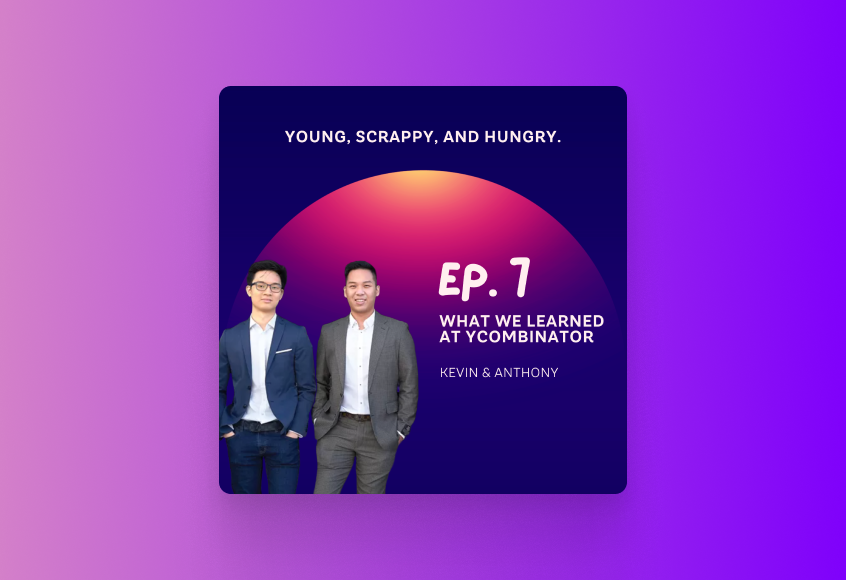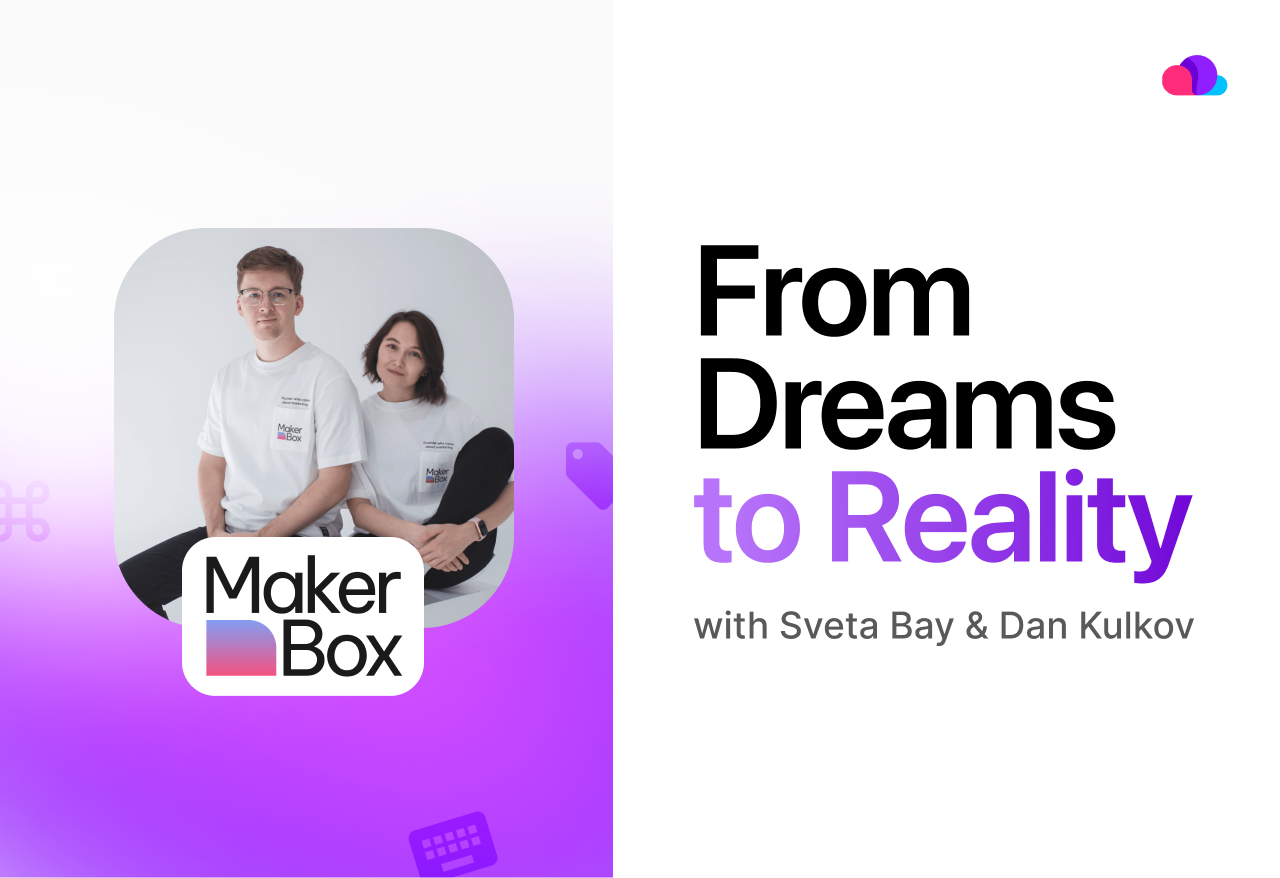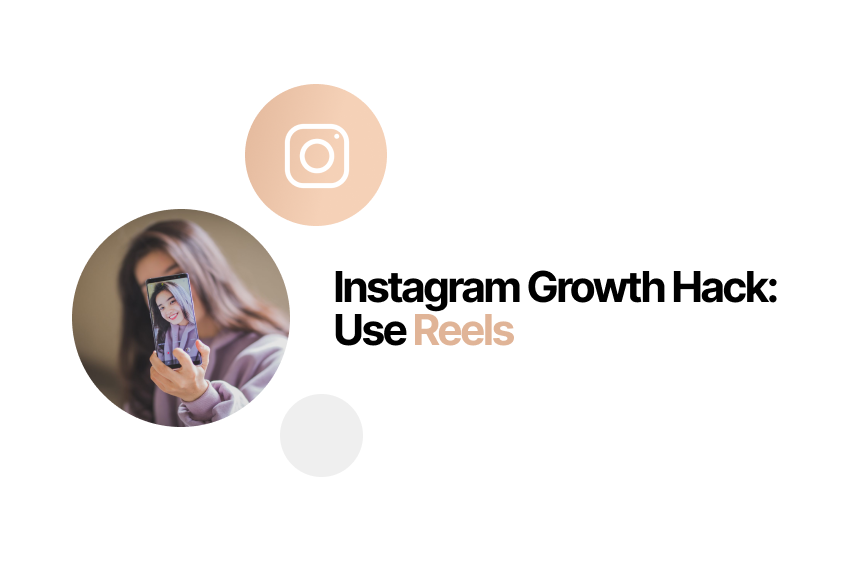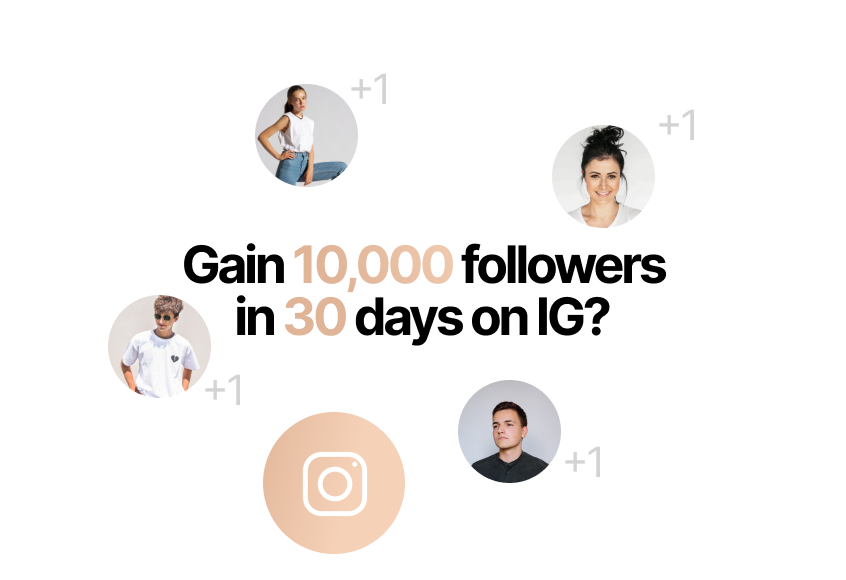What we learned at YC 🧠🧐
2023-06-05
A transcript of Episode 7 of our Young, Scrappy, and Hungry Podcast
Young, Scrappy, and Hungry is Typedream’s podcast where our founders talk about the product, stuff they’ve learned along the way, the founder mindset, and things they think about as immigrant startup founders in Silicon Valley.
Listen to this episode on Spotify and Apple Podcasts
or on YouTube podcasts
Kevin: Hey guys! Welcome back to another episode of Young Scrappy and Hungry with Kevin and Anthony here. We're gonna talk about what happens during YC. After our previous episode where we told you guys about what happened prior to that. Leading up to that moment. And, you know, our sins when we were young.
Anthony: Yeah. While we were still chasing, um, hype cycles, talking about crypto, talking about how we, you know, our early days of, um, getting into the industry, right?
Trying things out, seeing what failed, I guess. So when did we start applying to YC or got into YC was around 2019
Kevin: 2019. Yeah. 2019.
Anthony: After summer. Right. After summer. So, so we, we spoke to a lot of people about it. I mean, we tried getting into it. So we spoke to a lot of our previous batches.
We spoke to a lot of founders asking for advice in general. And, and at that point, our idea, we already pivoted from um, crypto exchange. Like it was like early 2019 and we were trying out something new, but it was still in the fintech space. You wanna talk more about that?
Kevin: Sure. Yeah.
We it a little bit, little bit. It's still in trading. We wanted to build Robinhood for Indonesia. We thought it was a brilliant, brilliant idea. I mean,
Anthony: It’s not as bad as crypto exchange. Right. Of, of course, like, like it was more clear there, there were, you know, APIs that we can use. We didn't have to build from scratch, essentially, like just, you know, making a nice UI.
Slapping, you know, Being in, in a different country. Right. Serving to different people. And we called it, I guess, Robinhood for Indonesia.
Kevin: Yeah. And at the time, you know, we were basically just a front end wrapper. Um, it was a lot easier to build and, uh, we trusted ourselves a lot more because we handed over the, the trading, uh, mechanisms, uh, all to a broker dealer here in the US. Mm-hmm. And so,
Anthony: yeah, I think, and it was like much more financially regulated. It was much, much safer.
Kevin: Yeah. And then I think for us, we, uh, we applied, it took a long time for us to, to submit our application. I think we applied the night before the deadline.
It's quite crazy. I checked our, our YouTube video was uploaded exactly the night before the deadline. You know, like, that was pretty crazy. But I, I, I think we worked on the application quite, quite some time before that deadline, we just weren't sure, you know, we thought there was this magical moment kind of thing.
Anthony: we did see other people doing similar things within our age group. Whether it was Robinhood for India, Robinhood for Southeast Asia, you know, it was, uh, FinTech was also, uh, pretty up there back then. You know, people thought that, you know, another
Kevin: hype cycle
Anthony: hype cycle, but it was, uh, a little bit more chill compared to crypto.
Kevin: Yeah. And then I still remember, man, after we applied, we really didn't think that much about it. We hoped a lot that we would've gone in, but you know, we were somewhat realistic as well, um, behind the scenes, and I still remember that day when we got the email to interview, it was really crazy
Anthony: even though we still had an interview, right?
Kevin: Yeah. We, we thought it was like, oh, it's a stepping stone though. Like, yeah, it's getting somewhere. And I, you still remember those days. We, uh, we basically try to. Prepare for the interview, do mock interviews with a bunch of, um, alumnis from YC, and we just did it every day, man. Morning to nighttime. We really wanted to get in.
It was, it was fun times. It was, it was, it was crazy, but it was fun. Yeah. And it
Anthony: was like a different time when like, I guess we all were, you know, we, we didn't have much to do. Right. Yeah. Yeah. I mean, like, it was all in our
Kevin: mind. Exactly. Yeah. And come interview day. Um, I think we specifically picked a dated time, which was the last, for that week.
And, um, you know, we just basically wanted to know the results immediately after the interview. Right. We did get in? Didn't get in? If we got in, we would've been, we didn't have to wait until the end, end of the day. Like,
Anthony: like, yeah, yeah, yeah. So like, if you, it was the, if it was the worst day of your life, you want it to be over quick.
Yeah. Yeah. But it was the best day then,
Kevin: you know. It's pretty good too. Exactly. Yeah. We went into the interview, um, people keep saying that, you know, YC interviews usually last about 10 minutes. Ours was less than that. Um, because YC admitted the exact same company in the previous batch. Yeah. And. Yeah, I guess they, you know, the, the partners who interview is probably already know what we're trying to do, what we're trying to solve for.
Anthony: I mean, I mean, the business model is pretty clear, you know, charging off trades, you know, commissions, order flows
Kevin: and they didn't ask us a lot of the template questions like, oh, how big is the market side? Yeah. Obviously they already know and. Yeah, it was fun. Um, we did the interview.
Less than 10 minutes went out. Um, and I think I remember after that interview we, we went to Nijiya Market somewhere near Mountainview
Anthony: yeah.
Kevin: We were shopping for food cuz we hadn't eaten day, right? Yeah. The entire day. And, uh, when we were about to check out, I so remember, um, I got a phone call from Gustav.
It was from an unknown number actually. Oh. But then I picked it up. I, I had a, had a gut feeling. We were like, guys we got a call. We got a call. So we were like, it wasn't like a spam
Anthony: call from like some credit card company.
Kevin: We knew. We knew. Um, but, you know, we, we just couldn't hide how happy we were.
We tried so hard to be composed and when I picked up the call, it was Gustav of the other end. Um, asked us if we wanted to join YC. Yeah. And we tried to be cool and we just said “Yes”. But then, you know, uh, we said yes. Uh, we had to immediately go back. Yeah. Cause there was a day when, that was the day when they welcomed everyone. It was a welcoming day. Um, they, you know, everyone who were accepted from that first week, first batch of interviews, um, had to come. Um, was it like the
Anthony: first y uh, YC dinner or like, was it, was it even a dinner? I don't remember.
Kevin: I don't remember. Um, I think it was, I don't think there was dinner.
I think it was just introducing us to, to each other, who our partners were. Mm-hmm. Um, and it was, it was a really surreal kind of experience. When you get in and you sit at YCs office, you look left and right. You see all these ambitious people. You're like, man, where are we? I was just, You know, it, it was, it was a crazy moment for, for me
Anthony: and all us, it was a completely different like planet.
Right. We were talking to, um, you know, you know, prominent VCs from Indonesia. Uh, but we had never experienced this sort of like community.
Kevin: Yeah. And I still remember to this day, Geoff Ralston was the guy who opened that welcoming day. Mm-hmm. And he told us, “Look to your left, look to your right. One of those guys will be a billionaire in a couple of years.”
And I was just like, astounded. I was like, wow, it is gonna become true. And, you know, um, we started the batch, we were assigned our group partners. Um, I think at the time we got Michael Siebel, no, wait,
Anthony: wait. Oh, I thought we got Gustav first, right?
Kevin: Yeah. But there was a conflict of interest. Yeah. Yeah. Then we were passed on to Michael Siebel, Adora Cheung, um, Tracy Young.
Mm-hmm. And who's the other guy? Aaron. Aaron Epstein. Aaron Epstein. Aaron Epstein. Aaron Epstein. Loved that guy. And Kevin Lin from Twitch. They were really great partners. Uh, we went home after the welcoming. And we still couldn't believe that we got in. Um, it was, it was crazy. We went back home, slept
The morning we woke up. We still couldn't believe it. It was just wild. And we got in wanting to build Robinhood for Indonesia. Right. So immediately the next week, uh, I bought a ticket back home. Um, whereas the, the rest stayed, um, to do YC. Uh, I went back home to, to set up initially I was alone.
Albert came a bit later. I see. Um, but yeah, it was, it was like crazy times, man. Um, went back home, tried to set up everything, um, tried to get the licenses, the regulations right and whatnot. Talked to all the people in the space, uh, specifically in finance. And yeah, I basically just got a hold of, of a lot of broker dealers back in Indonesia.
And what we learned was that, it's probably not worth it to start something like Robinhood for Indonesia. And the reason being is because, you know, the GDP per capita just isn't at a level in which people are thinking about investing, number one, uh, from the macro level. And number two, there just wasn't a clear path for us to make enough money, so we would've had to raise, you know, maybe for like the next five to seven years to wait it out so that people are ready to invest
Anthony: then, I mean, even, even in hindsight, uh, these days, I wouldn't be so sure that it's a good market to get into even now. Yeah, exactly. I mean, it's been like, what, like three, four years?
Kevin: I don't know. Three, three. Yeah. It's been, it's been, it's been four years. Four years now.
Yeah. Yeah. So not much has changed. Not much has changed, I would say. Yeah. And when we were there, we decided that, you know, regulation was, wasn't gonna cut it. Um, Economically and wasn't gonna cut it.
Anthony: And like we were doing something that is, um, pretty new, uh, trying to bring us docs to Indonesia and the regulation was, was really, really, really sparse and not clear.
It wasn't illegal, but, uh, it was not something in the interests of the Indonesian people, I guess.
Kevin: Yeah, it was, it was hard at the time because we've always wanted, you know, as a startup, as a small company, to move fast and break things. Unfortunately we were in the very wrong industry, especially in fintech.
You can't move fast and break things. You sort of have to follow the rules. Mm-hmm. And so yeah, we decided to, you know, maybe we should try something else. Um, maybe this wasn't for us because we would've had to raise. A ton of money to buy an an Indonesian broker dealer license and all that. Yeah. Would've cost us like more than $6M.
And this was all dollars during the YC batch, right? Mm-hmm. Yeah. It was during the first month or so. I
Anthony: see. And YC was three months. So in the middle of the batch, I guess we were searching, we were not searching, but we were looking at products and, and we found. Sort of new products that we were interested in, and we thought that could apply to our social, like, like needs.
Um, and one of them was, uh, you know, authentication.
Kevin: Yeah, yeah. So authentication itself. Uh, when we were building a, um, our trading app, Robinhood for Indonesia, we realized
Anthony: that there was no password. Right?
Kevin: Yeah. Yeah. That the author was very different. We initially started with, Of, you know, sign in with Google, all those email providers.
Mm-hmm. But then, you know, in developing countries, people don't really use emails.
Anthony: Yeah. They use, uh, mobile phones. Right. They use mobile phones.
Kevin: And when we realized that and we're like, okay, maybe there's something for us to do here, um, let's try to do off. Then, uh, when we're building out, when we were building out the app, uh, a couple of other trading apps, uh, locally in Indonesia were interested in how we were doing auth, we were doing things with, you know, those public key infrastructure, um, authentication, um, everything passwordless. Uh, we actually, uh, got our first client because, uh, or, or B2B sales deal because, uh, another trading app looked at our app and they were like, how, how, how'd you guys do this auth thing? Hmm. So we were like, okay, um, “You guys want to pay for this?”
And they said, “Yes.” And when we got our first B2B deal that way, we, we got really excited. We was like, okay, uh, if, if, if they want to pay for this and, and other apps in the region are also using passwordless and, you know, they told us it was really, really expensive to keep sending one time passwords over sms.
Mm-hmm. Like, why not? Why don't try it? And so I went back to the US and. And we basically kickstarted things that apparently it's a problem here in the US as well. Uh, if you're a younger audience or even an older one that, that never touched email, you probably would do authentication the same way. And, you know, we saw companies remember, like Fast remember, um, other password list companies were popping up those days.
And another hype cycle. Uh, and so yeah, we, we, we did this, um, passwordless authentication product and we called it Coter. Um, ran it for like about 11 months. Um, and you know, a couple of lessons we learned, um, you know, running a B2B enterprise software, it really isn't about the product, it really isn’t about tech.
It was mainly about their relationships. Like, and, you know, we, we just couldn't do salesmen for the first 11 months. It was hard. We, we got, we got the ball rolling with a couple of B2B deals, a couple YC companies using us. Um, but to continue from that was, yeah, really hard. I mean, the volume was so small.
Yeah, we, we really tried, but then we understood that selling to these Fortune 500 companies, you know, you gotta be ex something. Right. Yeah, you did sales at Salesforce or
Anthony: or at least like your experience level has to be far beyond what we had at that moment.
Kevin: Yeah. You had to be really connected. Um, yeah, connected and you know, just have a lot of relationships with people who can buy in the position to buy those Fortune 500 companies, and you gonna have those people.
It's gonna be really, really tough. Mm-hmm. So, yeah, we learned that lesson, learned it the hard way, uh, moved on, tried to target devs, developers. Am I right? Yeah. So yeah, that was, that was weird. We tried targeting developers because it was like, it was like pretty, pretty wrong, right? Like, it was pretty wrong.
And building, building a product for developers. Um, you know, as we know from our experience, they don't really like to pay for stuff.
Anthony: Yeah. I mean the, the people who were, what. Are the people who are developing for don't want to pay for it.
Kevin: Yeah, yeah.
Anthony: And people like whowant to pay, who want B2B people, well, they're not developers and they don't understand what we're doing.
Kevin: Exactly. And for these developers, they've always had the option to just choose an open source version of what, like a million out there. Exactly. So it was a tough one. Um, then we tried moving on to somewhat. Building and authentication, uh, for, you know, different no-code tools out there. Mm-hmm. Um, built a bunch of website builder plugins for auth.
Um, it was, it was a good run. Um, we started getting, um, revenue that way, charge her product for a significantly lower price. And yeah, it was a good run for, for 11 months. Yeah. Lessons learned.
Anthony: Um, just, just a voice memo for Kevin to remember when he's older. Yeah.
Kevin: Uh, the lessons learned about building a B2B SaaS product. Um, it's, it's not that easy.
Uh, mm-hmm. Most, uh, founders, you know, if, if you're early on, and this is probably your first rodeo into the, uh, tech world. It's, it's really not about the product or, or the tech that you can build. It starts with a relationship first, and then it's gonna be the product that tech.
Anthony: Yeah. I mean, I guess you can think of it in like a different way, or like you can like raise enough money to hire the salespeople.
Mm. But I guess we weren't at stage either. Yeah, we weren't. Um, I mean, you have to be really convinced, right? You have to be really convinced that you're gonna reach product market fit. Yeah. Because those safe people are not very cheap and you don't know when your return on investment is gonna come.
Kevin: Exactly. So yeah, I guess lesson learned guys, uh, that we just wanted to share, uh, with other founders is that startups are hard. We try to consumer product hard to make money. Mm-hmm. We try to B2B SaaS product, hard to sell. Um, And yeah, I guess on the next episode we'll tell you more about how we finally moved on to Typedream and how it got us to, to this point in which, you know, uh, we've experienced the growth that we've never had before.
We've experienced the love that we've never had before for our product. And yeah, I guess that's for the next one. Uh, thank you for listening.
Anthony: Thank you for listening, Kevin's kids
Kevin: and yeah, see you guys. Bye-Bye. Yeah.
See More Posts
We're a remote software company, building online tools for creators, builders, and side hustlers. We quit our 9-5 to pursue our dreams, and we want to help others do the same.
Backed by
Copyright © 2023 Govest, Inc. All rights reserved.



